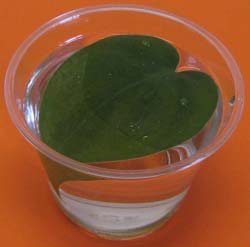|
Kids Science Newsletter #5
Dolphin Superpod
Hi,
This Kids Science Newsletter includes a question of the month, current science events, science trivia and a simple science experiment.
Question of the Month
What sound does a rocket make in space?
(answer follows the simple science experiment)
Science Current Events
- Dolphin Superpod
- Whale watching off the coast of Scotland turned into dolphin watching. The tour boat was in the middle of over a 1,000 dolphins swimming around in a superpod. One tourist reported, "They were everywhere you looked as far as the eye could see." There was five square miles filled with dolphins. The tour boat operator said he had only seen this once before in the 15 years he had been guiding tours. It is believed the dolphins were after a shoal of fish and they were migrating northward into the North Sea.
- Kilauea lava flowing toward home
- A fresh surge of lava from Kilauea sent one couple and their two pets from their home. The home was threatened when a lava flow came with 300 feet of their home. Several forests fires as the lava moved parallel to the coast instead of flowing into the ocean. The last time that lava flows buried homes was in 1987. The subdivision, Royal Gardens, was destroyed when the lava flowed through the area destroying homes and trees in the subdivision.
- Pacific Ocean Recycled Island
- A Dutch company plans to construct a massive island in the middle of the Pacific Ocean using the plastic that is floating debris between Hawaii and San Francisco. The "recycled island" will clean out a majority of the debris that has collected in the area. It would provide a place for people to live that are losing their homes as the ocean level rises. The company plans to use solar and wave power for the residents. A large part of the island would be set aside for agriculture so residents could raise their own food.
Science Trivia
- Although covered with ice (all but 0.4% of it is ice), Antarctica is the driest place on the planet. It has an absolute humidity lower than the Gobi desert in Africa.
- One third of all your brainpower is used for vision.
- Airplanes were invented after parachutes.
- Some sea turtles can become very large and weigh as much as a water buffalo.
- The reason that we have seasons is because of Earth tilting on its axis at 23.5 degrees.
- Hamburgers are a favorite American fast food. The average American will eat the weight of a family car in hamburger during their lifetime.
- The years on the planet Mercury are shorter than its days.
- Candy canes when they were first created did not have stripes.
Simple Science Activity
Leaves Create Oxygen

Introduction
The air that we breathe is 21% oxygen. After we breathe in oxygen we exhale carbon dioxide. Carbon dioxide is needed by plants for them to live.
Materials
- Green leaf
- clear glass
- Water
- Sunlight
- Small hand lens (optional)
Directions
- Cut a green leaf off of a plant.
- Fill the glass with water.
- Place the leaf in the glass in a sunny location.
- Predict what you will see after an hour. Write your prediction down on paper.
- After an hour carefully look at the leaf and side of the glass.
- You should be able to see lots of tiny bubbles that have formed on the edges of the plant and side of the glass.
- Leave the plant in the sunlight for several more hours to see if the number of bubbles increase or decrease.
Science behind the experiment
The bubbles you observed on the leaf and sides of the glass were oxygen. Leaves take in carbon dioxide and through the process of photosynthesis they create food for the plant. Oxygen is a by product of this process and goes into the air. The air we breathe contains 21% oxygen that is produced by plants. Without plants we would not have enough oxygen to breathe.
Answer to the question of the month
Rockets do not make a sound in space because there is not any air. Sound travels in waves and because there is no air the rockets do not make any sound
Easy Science Experiments
Science Activites
Home Page
Share the newsletter
Please feel free to share this newsletter with a friend by forwarding it to them. If you know of a group or other person who might enjoy the newsletter please let them know about it also.
Comments? Ideas? Feedback? I'd love to hear from you. Just reply to this Kids Science Newsletter and tell me what you think!
Sincerely yours,
Myrna Martin
|



